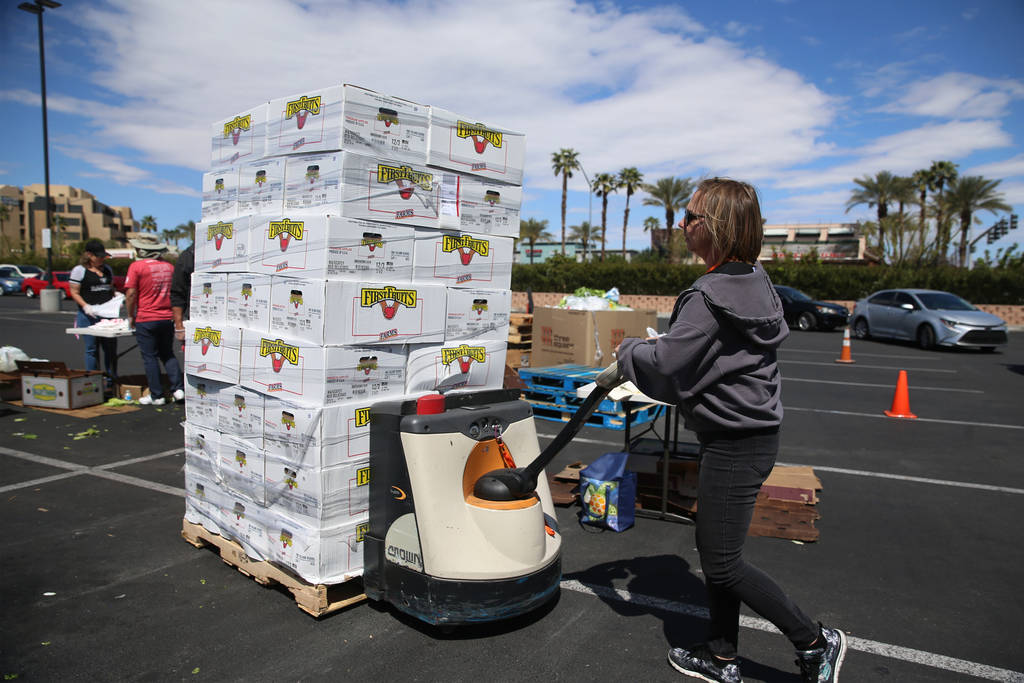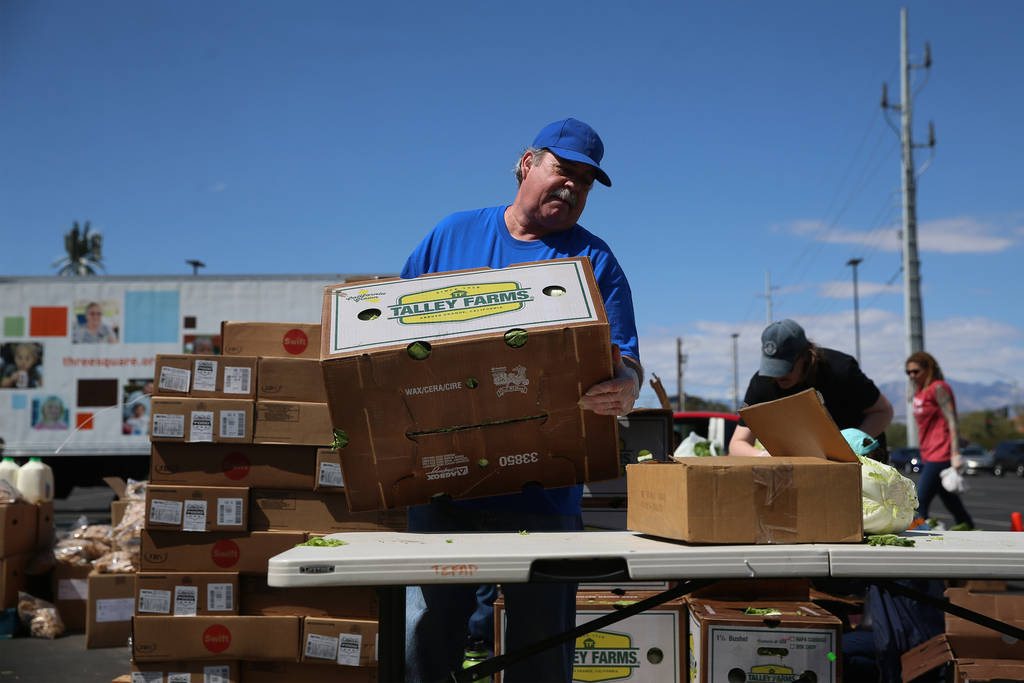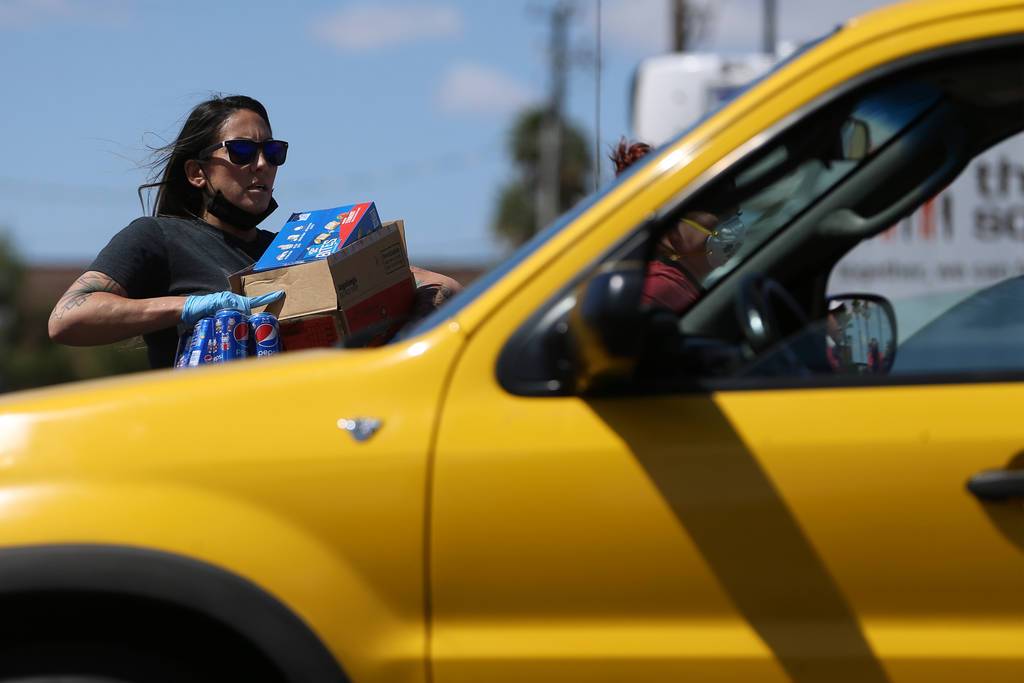Nonprofit workers may face fewer layoffs than others, experts say
Nonprofits all around the Las Vegas Valley have had to lay off workers.
But overall, workers at nonprofits may fare better than workers at other local businesses.
Organizations as large as Three Square were not immune to staff cuts as the pandemic forced many nonprofits to reconsider their finances.
Larry Scott, chief operating officer at the food bank, said that approximately a dozen staff members associated with its after-school program were furloughed.
“But once we began to box 12,000 meals towards seniors each month, we brought those furloughed employees back and they are doing that work of boxing those meals for seniors,” Scott said.
Recessionary anxieties
If the Great Recession can provide any insights into a coronavirus-led recession, Three Square may be in good company with other nonprofits that have limited — or will be able to limit — layoffs.
“We found that during the 2008 recession, nonprofits continued to add employment right through the recession,” said Lester Salamon, a Johns Hopkins University professor and the center’s director.
Nearly 2 million U.S. workers have lost jobs in the nonprofit sector as a result of the coronavirus pandemic through May, according to a new report slated for publication this month by the Johns Hopkins Center for Civil Society Studies.
“Those are real losses, and they are likely to be sustained,” Salamon said.
It is unclear how many nonprofit workers have been laid off in Nevada. Data from the state Department of Employment, Training and Rehabilitation shows nonprofits employed 57,088 workers across 1,899 organizations statewide. More than 32,000 nonprofit employees worked in Clark County.
While the pandemic’s toll has disrupted every sector, nonprofits generally do not cut jobs as sharply as for-profit organizations, because they’re committed to their mission, Salamon said.
Jessica Word, an associate professor at UNLV’s School of Public Policy and Leadership, said that previous U.S. recessionary periods have shown that nonprofit employment “tends to be more steady and actually grow at a higher rate than it does for businesses to recover.”
It’s difficult to assess the pandemic’s effect on nonprofit employment because the federal agency tasked with compiling monthly U.S. unemployment rates — the Bureau of Labor Statistics — releases nonprofit data once every five years, Salamon said.
“We’ve been able to get the BLS to generate these data, but only every five years, and it’s terrible,” Salamon said. “We are in the midst of a national crisis that is affecting nonprofits massively. We need to get updated data.”
Federal and state funding
Some Las Vegas Valley-area nonprofits began to prepare for an economic downturn in March with staff furloughs and layoffs.
Linda Perez, CEO of The Shade Tree, said, “When the governor had done the announcement that we were not going to reopen as soon as we thought and cases had declined, we did have to make that decision, unfortunately” to lay off a few employees. Her organization provides safe shelter to homeless and abused women and children in crisis.
This time around, nonprofits stand a chance to be on stronger footing going into the pandemic-spurred recession with federal and state money that helps organizations stay afloat.
For some nonprofits that didn’t secure funding in the first round of the Paycheck Protection Program — which is part of the $2 trillion federal stimulus package enacted in March — a statewide program has emerged to fill some of that gap.
Developed by the Workforce Connections, Southern Nevada’s Local Workforce Development Board, the Layoff Aversion Pilot helped keep local nonprofit workers on payroll.
The wage reimbursement pilot program has helped four local nonprofits and more than 60 small businesses in Southern Nevada keep employees on payroll by using funds provided by DETR ($694,000) and Bank of Nevada ($100,000).
The Grant a Gift Autism Foundation is among the nonprofits that received federal help.
“These reimbursement funds will help keep our employees on payroll so we can continue to support families with autism,” Grant a Gift CEO Terri Janison said in a statement. “The funding actually creates a trickle-down effect; we are able to keep our employees on the payroll, they in turn are available to support the families going through tough times in this crisis.”
Contact Jonathan Ng at jng@reviewjournal.com. Follow @ByJonathanNg on Twitter.
























